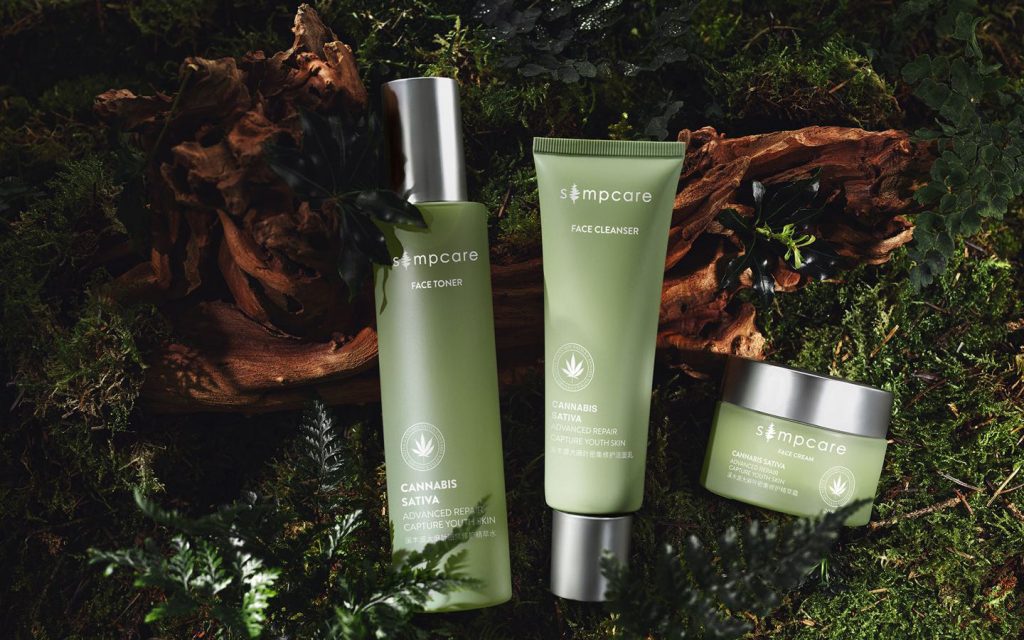CBD skincare is expected to become a $1.7 billion market in 2025. A key driver of this growth is the healing properties of CBD-infused skincare products, which can help alleviate acne, dryness, inflammation, and sensitivity problems. What about CBD skincare’s prospects in beauty-obsessed China, where women spend more on skincare luxury handbags?
Below, we give you three essential pieces of information about CBD skincare in China. If you’re a CBD-infused skincare brand and would like to know more about what’s possible in China, get in touch with our experts for a free consultation.
There Are Only Three Permitted CBD Skincare Ingredients in China
CBD-infused cosmetics typically use three leading derivatives of the cannabis plant: fruit, seed oil, or cannabis leaf extract. In 2015, China’s State Food and Drug Administration updated the Inventory of Existing Cosmetic Ingredients in China 2015 (IECIC2015) to include cannabis sativa fruit, cannabis sativa seed oil, and cannabis sativa leaf extract. At present, these are the only permitted CBD ingredients that can be used in CBD-infused cosmetic products. Note that CBD ingredients are not permitted to be used in food in China.

Domestic and International CBD Skincare Players Are Active In China
There are a handful of early movers in the market. These include:
- Simpcare
- Cannafever
- INBRIZ
- Uncle Buds
- Pacifica
- NORDICCOSMETICS
- Revolution
Of these, Simpcare, Cannafever and INBRIZ are domestic players. All three have been backed by local venture capital. International players would be wise to take note of what domestic players are doing, especially around face masks and ampoules. These are product propositions more attuned to the needs of Chinese consumers.
This is to say, incoming international players think about localizing their products and communications if they are to succeed long-term in China. You can use our handy market entry checklist to think about this.
Most International Brands Sell CBD Cosmetics in China Through Cross-Border e-Commerce
China has strict narcotic control laws. Many international brands have decided to sell only through cross-border e-commerce, rather than attempt to import into China and sell through general trade. This is because cannabis ingredients are subject to strict supervision by China’s Public Security Bureau. This makes importing CBD skincare products into China and selling through retail channels very challenging.
Tmall Global has become a go-to destination for beauty brands that want to reach Chinese consumers without going through a litany of red-tape.
Apart from allowing CBD-infused cosmetics brands to sell into China, launching via cross-border e-commerce also has a number of advantages:
- Test Market Demand: A launch via Tmall Global allows new market entrants to de-risk their entry into China and assess market demand over a 12 or 18-month period, before looking to commit further resources and explore distribution opportunities within China’s massive consumer market.
- Validate Market Entry Business Case: North American and European brands prefer test-and-learn approaches to market entry. Entry through e-commerce allows brands to gauge what sort of effort and resource commitment they’d need to pursue entry into China. In addition, it also allows newcomers an opportunity to test and finesse assumptions about their unique value proposition, marketing, pricing, merchandising and relative strength against domestic and international competitors.
- Build in-Market Presence: Although there are indirect channels to reach Chinese shoppers (like overseas influencers and airport retail), these don’t deliver the return-on-investment that in-market presence does.
If you’re a CBD-infused skincare brand and would like to know more about what’s possible in China, get in touch with our experts for a free consultation.



